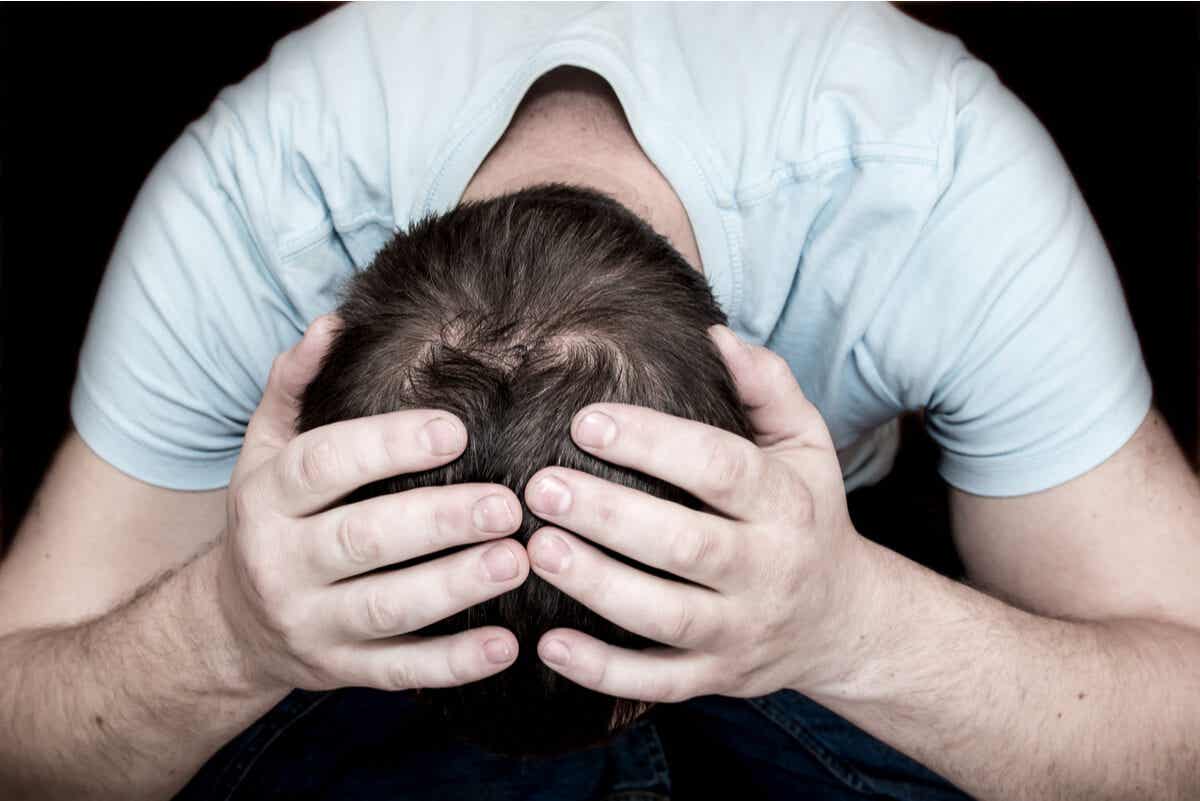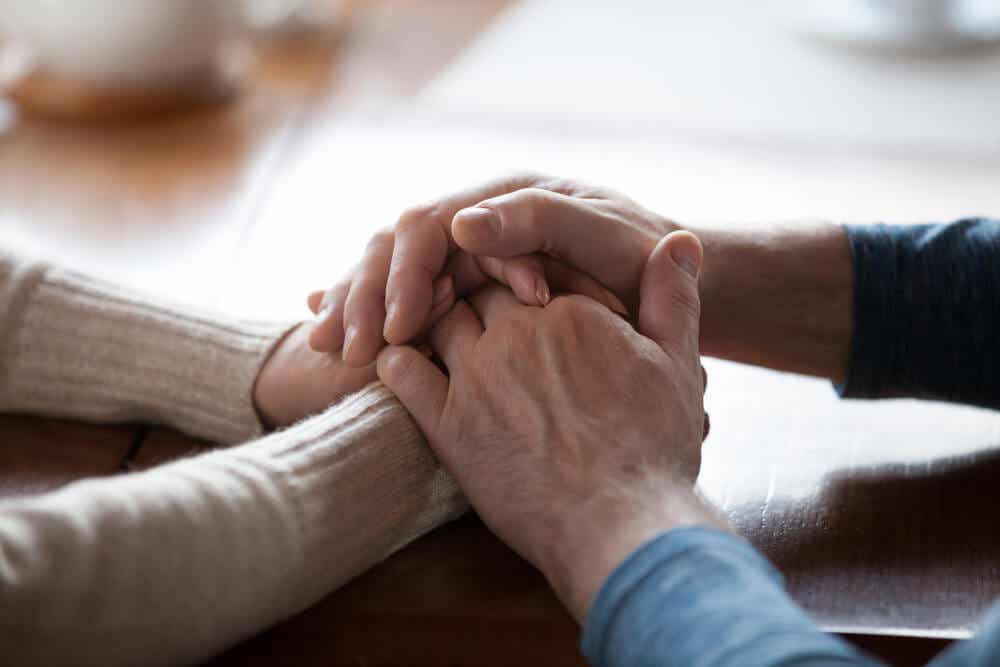Symptoms and Treatment of Abulia


Written and verified by the psychologist Maria Fatima Seppi Vinuales
“I don’t have the energy to do anything”, “I’m not interested”, “I try, but I can’t”. These are the most frequent phrases patients use in therapy sessions. Often, what they’re talking about is known as abulia.
Abulia takes the form of extreme apathy and manifests itself in a lack of interest, will, and energy to perform any activity. It may have a relatively simple cause or be due to something more complex, depending on the particular case.
Symptoms associated with abulia
Some of the symptoms that hint at the presence of abulia are the following:
- A lack of motivation and interest in performing any type of activity, both pleasurable and more routine ones, such as work or academic activities.
- The loss of the ability to feel enjoyment.
- Recognizing that there are things that need to be done or at least started, but this doesn’t happen. Abulia leads to procrastination.
- The loss of interest also manifests itself at the relationship level. Thus, there are difficulties in communication (no interaction, monosyllabic answers, no initiation or continuing of dialogue). Interest in sex may also decrease or disappear.
- Personal hygiene may be neglected or abandoned.
- Emotional dullness: indifference to or difficulty responding to the situations they’re experiencing.
- Slow movements or motor inhibition.
The severity of the symptom(s) is key here; its presence may not be a problem in itself, since most people experience difficulty with motivation or a lack of energy to initiate activities at times. It becomes a problem if the symptom persists over time.
As well as this, it should also be noted that abulia is common in mood disorders, such as dysthymic disorder or depression.

What causes abulia?
As with almost all issues or problems in psychology, there’s no single origin. On the contrary, it all depends on what disorder we’re talking about.
In certain cases, neuroendocrine changes (due to increased production of cortisol) may be a cause. Or, at the neurological level, some research findings refer to structural or functional problems in different areas of the brain, such as lesions in the basal ganglia.
In mood disorders such as depression, it’s known that alterations in the neurotransmitters serotonin, norepinephrine, and dopamine affect motivation. As such, one treatment option is to work on the symptom with antidepressants.
But abulia can also appear together with psychological or psychosocial factors, such as in the case of the prolonged and intense presence of stressful situations or traumatic experiences.
Read more: What to Do When You Don’t Feel Like Doing Anything
How is abulia diagnosed?
Given the complexity of the phenomenon and the multiple possible causes, diagnosing abulia should include a thorough examination that looks at neurobiological and psychological factors.
It’s important to consider different individual aspects, evaluate the patient’s life history and any adverse events that may be affecting them. It’s also important to consider whether social factors may have triggered the abulia or be prolonging it.
When abulia is suspected, interviews with the patient are of utmost importance, but the testimony of family members can also help. A better therapeutic plan can be designed if as much information as possible is available.
Available treatments
Treatment depends very much on the diagnosis. As mentioned above, abulia can be a symptom of different disorders. In general, a combination of psychotherapy and medication may be recommended, if deemed necessary.
As for the type of therapy, although there are many possible styles, cognitive therapy is one of the most commonly used. This is focused on adapting the beliefs and thoughts that the patient may have about themselves and their current state. Likewise, behavioral activation is another typical treatment.
As well as this, psychoeducation is also very important, both to aid understanding of the problem and to make the patient the main player in their own change. This allows them to take self-care measures and improve their quality of life little by little.
Tips on how to keep abulia from taking over your life
One of the biggest problems with abulia is the vicious circle that often develops. For example, as the person loses interest in their relationships, they become discouraged, which further reinforces abulia. Taking small steps can help interrupt this spiral.
Asking for help is already a challenge for people who suffer from abulia. In general, the apathy, low self-esteem and emotional inhibition act as obstacles to improvement.
1. Celebrate small accomplishments
For people with abulia, anything, no matter how small it may seem, is a difficult task. That’s why anyone who wants to help should try to involve them in small, realistically achievable activities in a gradual way.
For example, ask them to go for a 30-minute walk during the day. If they manage this, recognize and celebrate this accomplishment, which will motivate and support them to continue in the same direction.

2. Introduce new habits
It’s also very important to focus on good habits, such as a balanced diet, physical activity, and sleep hygiene. Psychotherapy usually works on programming daily activities as an intervention technique. This means the patient gets reinforcement each time they manage to complete something.
3. Encourage and accompany them in carrying out activities
People with abulia don’t want to participate in any activity, as they have no motivation. However, those around them can encourage them to accept proposals, even if they feel they have no energy. That way it’s easier to address the situation and help them regain interest.
Family and loved ones can help by providing emotional support, encouraging more social interaction, encouraging them to talk and express their emotions and feelings.
As part of recovery, plans usually include not only the therapist and the patient, but also the family.
Abulia can’t be cured overnight
Working on abulia requires patience. The steps may be small, but taking them and getting the person moving is a huge achievement.
Making realistic goals is key to any treatment so as not to generate frustration. But it’s equally important to have a supportive environment and people who can accompany the person on the road to feeling better, since isolation worsens the condition.
All cited sources were thoroughly reviewed by our team to ensure their quality, reliability, currency, and validity. The bibliography of this article was considered reliable and of academic or scientific accuracy.
- American Psychiatric Association. (2013). Manual diagnóstico y estadístico de los trastornos mentales. Quinta edición. DSM-V. Masson, Barcelona.
- Guadarrama, Leyla, Alfonso Escobar, and Limei Zhang. “Bases neuroquímicas y neuroanatómicas de la depresión.” Revista de la Facultad de Medicina UNAM 49.2 (2006): 66-72.
- Barraca, Jorge. “La Activación Conductual en la práctica: técnicas, organización de la intervención, dificultades y variantes.” (2016).
- Das, Joe M., and Abdolreza Saadabadi. “Abulia.” StatPearls [Internet] (2020).
- Aragonès, Enric & Cardoner, Narcis & Colom, Francesc & Lopez-Cortacans, German & Gilaberte, Inmaculada. (2013). Guía de Buena Práctica Clínica: Psicoeducación en pacientes con depresión.
This text is provided for informational purposes only and does not replace consultation with a professional. If in doubt, consult your specialist.








